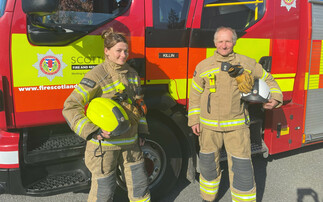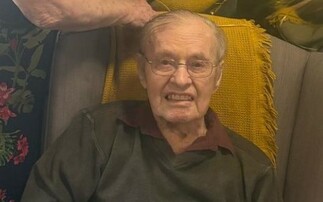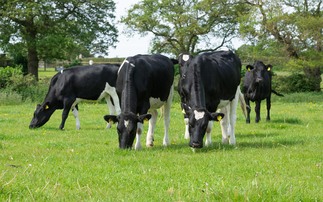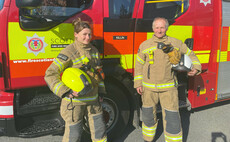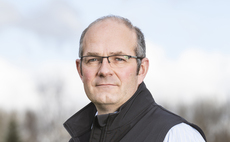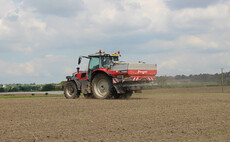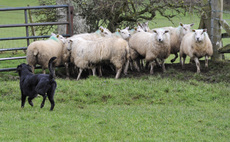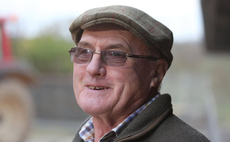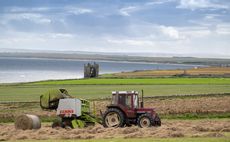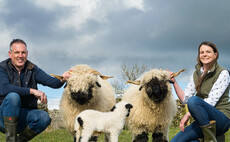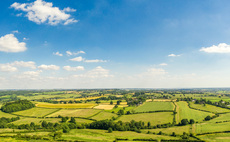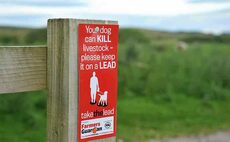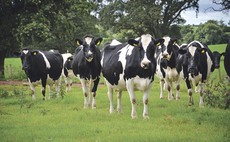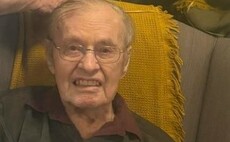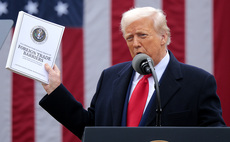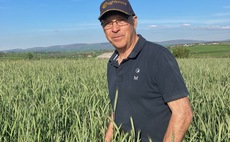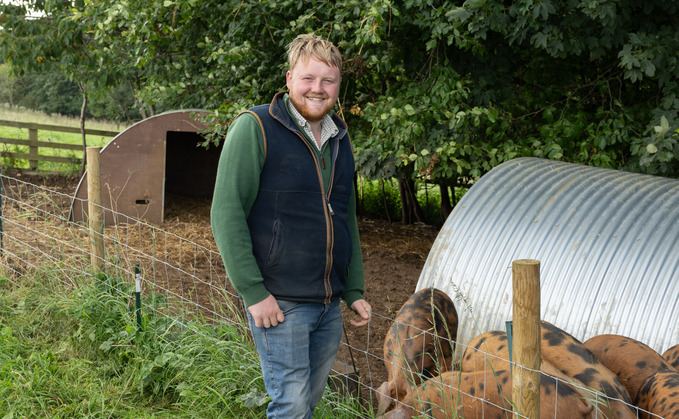
Q: What can we expect to see in the third series?
A: It was pretty wet over the summer, and we had a very wet harvest so when you first see us, it is a bad start. But we changed things up a little bit - Jeremy made me farm manager. I do not know why he did it this year because I have been doing it for the last five years, but I am farm manager on paper now because apparently before that I was just a ‘farm worker', as everyone keeps telling me.
It was a really tricky start to the year. I made the decision to plant some rapeseed even though it was a gamble, and I knew it might not work, but that highlights that farming is a risky job. You are risking money all the time, and worse than that, I am risking someone else's money, but we are a team at the end of the day.
We might argue, but me and Jeremy, Charlie, Gerald, and Lisa, we are all a team and we are all in this together.
I do not want to lose money for Jeremy or for the farm itself, but I made the decision to go out there and plant the seed even though a lot of farmers were not doing it. Then Jeremy and I have a little bit of a competition where we see who can make the most money – me doing the traditional farming, and Jeremy working on the unfarmed land. Jeremy wanted to highlight the diversity of farming that is needed with the changes in EU subsidies and climate change.
READ NOW: Q&A with Jeremy Clarkson ahead of Clarkson's Farm series three

Q: Do you think it is important to start thinking outside the box these days?
A: 100 per cent. I am very passionate about getting young farmers into farming and I have made that a bit of a goal to myself. But if I am telling young people to go into farming and the farming industry is on its knees, as it is right now, is there a future? I always try to be positive, do not get me wrong, but when you see what the Government are doing at the moment, it makes you realise just how much the public need to know about how this will affect not just farmers, but everyone. It does not feel like the Government are acting to secure farming's future and if they do not, a lot more than just our livelihoods will be put at risk.
Hopefully this series helps to get that message across by showing the day-to-day as well as how bigger changes are affecting our sector. So, it is a shame but we have been trying to make the best of it and diversify since the show began, with the farm shop in series one and then the restaurant in series two.
This time we look at the unfarmed land. The Government have told us to diversify, so we are trying to do that.
Q: Would you say farming is different than when you first got into it?
A: I started age 12 and I am 25 now. I was really young and I picked up on what the farmers were saying and it was difficult but, they were making money and business was thriving. I have noticed changes since - in my own contracting business we have to be extremely careful and efficient and creative.
These days the Government do not seem to know what they want. There are no schemes anymore; schemes and grants and funding from the Government keep food cheap for the public. Our red tape is much worse, so we have got to spend more money to produce our food, but are in competition with cheaper imports. This is exactly the sort of thing that I think people are waking up to and seeing on Clarkson's Farm.
READ NOW: #FarmingCAN - Kaleb Cooper: "The day I stop farming, god knows what I will be doing"
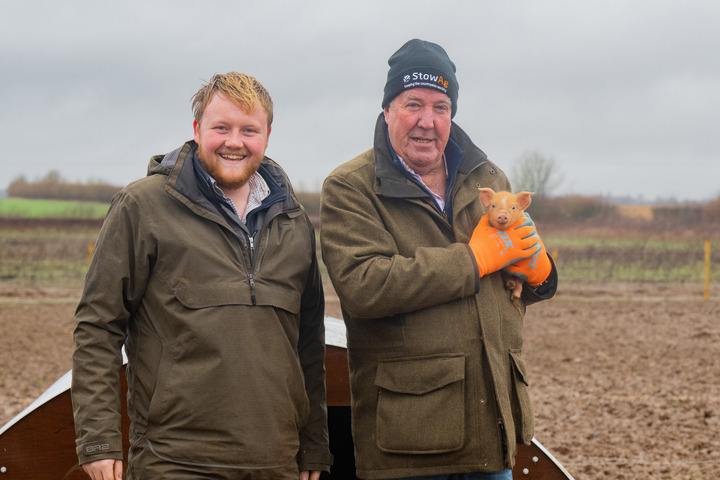
Q: When Jeremy writes all your outgoings on a whiteboard to show how much you are spending on fertiliser, seed and diesel, it really highlights the costs involved and the gambles you take, doesn't it?
A: I think that is what is really clever about our little competition, because what it brings home to the viewer is our massive outlays. He is doing up this whiteboard and his outlays are nothing because he is just cultivating blackberries or mushrooms or pigs or whatever it is, whereas I am massively in the red right from the start. His experiment of using the unfarmed land does not cost any money, whereas I am spending so much money on fertiliser, £100,000 or more. I will not say who won, but I think it is going to really drive it home for people that you really have to speculate a lot of money as a farmer without knowing if you are going to make any of it back.
Jeremy literally puts it in black and white and it was good to actually show the figures of what farmers are spending on an average year to grow food for our nation. It is a risk our farmers take every year and that is why they struggle with the job they do.
Q: Did you get competitive about it?
A: We are always very competitive with each other. Of course I wanted to win, but at the same time, like I said earlier, we are a team and at the end of the day, I am not there to harm the farm in any way. I want to make the farm money. But yes, I wanted to prove that I could win and show people that I can think outside the box and make a little bit of money.
Q: How are you and Jeremy getting along this series?
A: I think in this series we have probably our biggest ever argument. But do not get me wrong, I love the man. I think when you are good friends with someone, and you have that amazing chemistry, it makes everything easier. Yes, we can argue, and yes, we can shout at each other, but at the same time, we are friends. Two minutes after an argument, we can just agree to disagree and go for a cup of tea or go to the pub and have a pint. I firmly believe we have a good friendship and a good bond. We treat each other to dinners, we will go out and say: Who is paying for this one?
We take it in turns. When it is my turn we go to the cheaper restaurants.
Q: Has Clarkson's Farm changed you in any way?
A: There is always a lot of talk of such as: "Don't change, Kaleb, don't do this and don't do that."
But that really annoys me. I am 25 years-old, yes, but I started my business at 13 years-old with some chickens, and I then started my contracting business at 16 so I have been doing this a long time and with everything that I do, it has got to revolve around my business.
I am not going to chuck away my main business, the thing that feeds me, just because I am on TV. I work every day. When I am away I am still doing all the calls and buying cows and selling cows and sorting contracts out with farmers. If you are in the right job I firmly believe that you wake up and go, "Right, great, what is happening today?" rather than waking up and thinking you cannot bear to go to work.
Farming is not a job for me, it is a way of life and I love that way of life. My dream is to buy my own farm and that is what I am aiming towards.
There is something that has stuck in my head continuously: Dreams don't work unless you do.








